They don’t need grand gestures, just a few everyday moves that say you’re their person.

Dogs aren’t keeping score with big moments. They care way more about the little routines, the things you do without thinking that accidentally become their favorite part of the day. Your tone, your timing, your habits, your weird little voice when you talk to them. They’re watching it all. And some of those small actions carry way more emotional weight than you realize. These aren’t tricks or training. These are what build trust.
1. Locking eyes for more than two seconds hits them right in the heart.
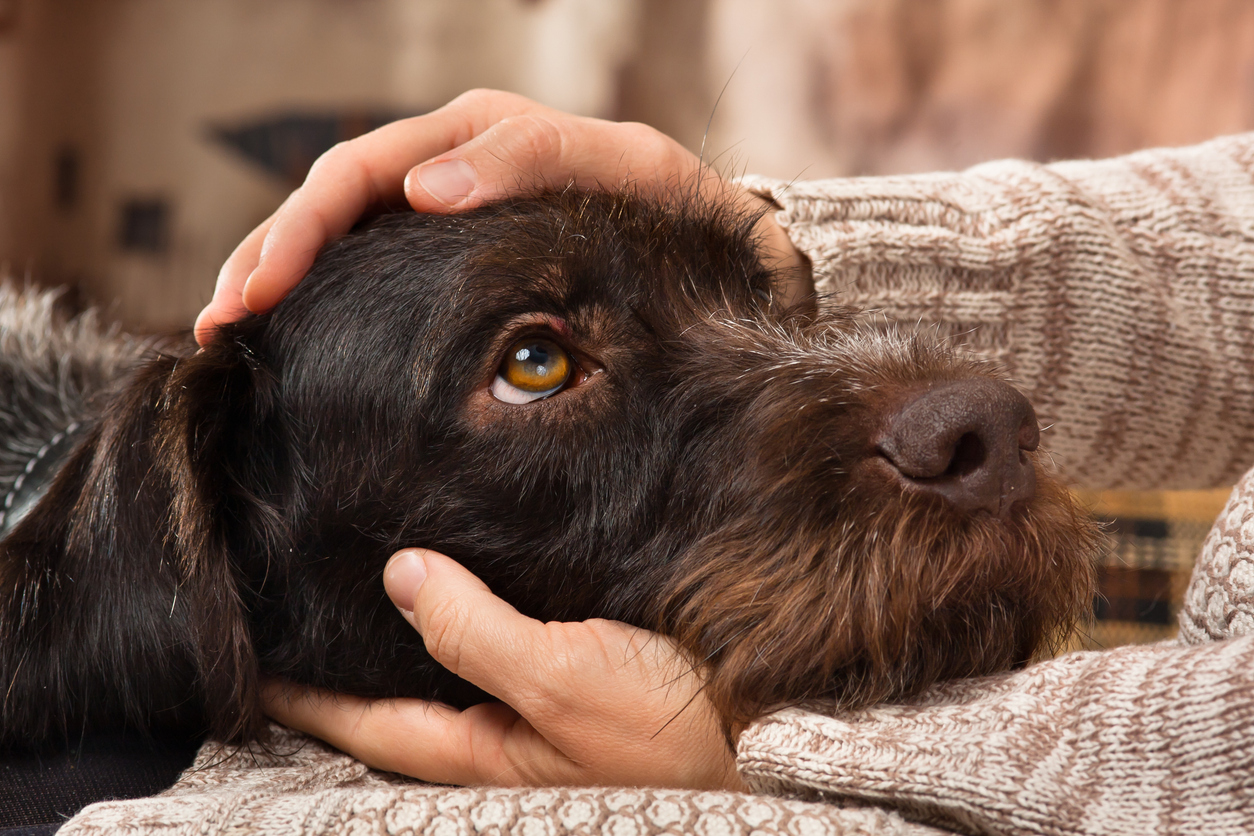
It’s not just a stare. It’s connection. As discovered by researchers at Azabu University in Japan, when you lock eyes with your dog, both of your bodies release oxytocin—the same hormone that helps human babies bond with their parents. That little glance is basically emotional glue.
A calm, soft stare can feel like a full-on love letter to your dog. It tells them you’re paying attention, you see them, and they’re safe. No words needed. They’ll hold your gaze and blink slow, or they’ll tilt their head like they’re really taking it in. You don’t need to overdo it. Just being present with your eyes tells them everything. It’s their version of a long hug.
2. Saying their name in a certain tone lights them up inside.
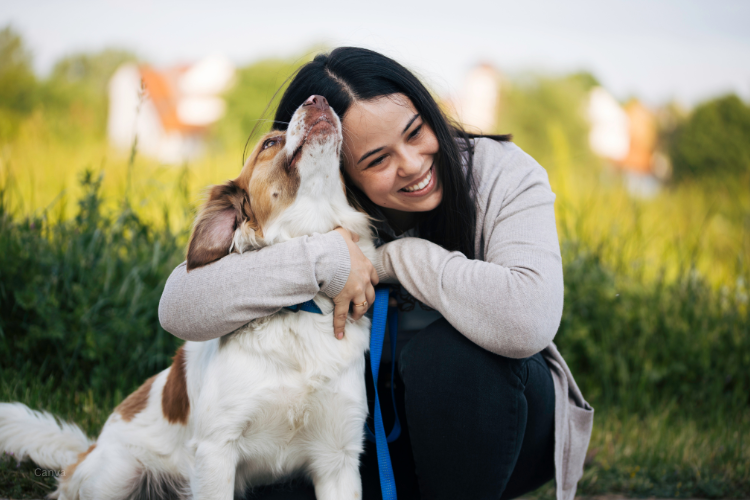
Dogs care less about what you say and way more about how you say it. According to a study from Eötvös Loránd University in Hungary, dogs process both words and emotional tone in different hemispheres of the brain, meaning they don’t just recognize their name, they also read your vibe while saying it.
When you say their name with warmth, excitement, or affection, their brain lights up like they just got a treat. You don’t need to baby-talk every time, but adding a little sparkle to your voice goes a long way. They hear their name and link it to how it feels when you say it. Neutral tone? Eh. But a soft, happy “Bailey” hits different. They’re picking up on all of it.
3. Coming back when you said you would builds serious trust.

Leaving is hard enough, but coming back when expected tells your dog they can actually count on you. As stated by the American Kennel Club, routine matters more than we think. It’s not about rigid schedules, it’s about consistency in the promises you accidentally make every day.
When they see you grab your keys and go, they wait. Some dogs nap. Some panic. But if you show up again around the same time, they start to understand the rhythm. They learn they weren’t abandoned. They learn to breathe. This is what calms separation anxiety long-term. Not gimmicks. Not crates. Just showing up like you said you would.
4. Letting them sniff as long as they want gives them mental freedom.
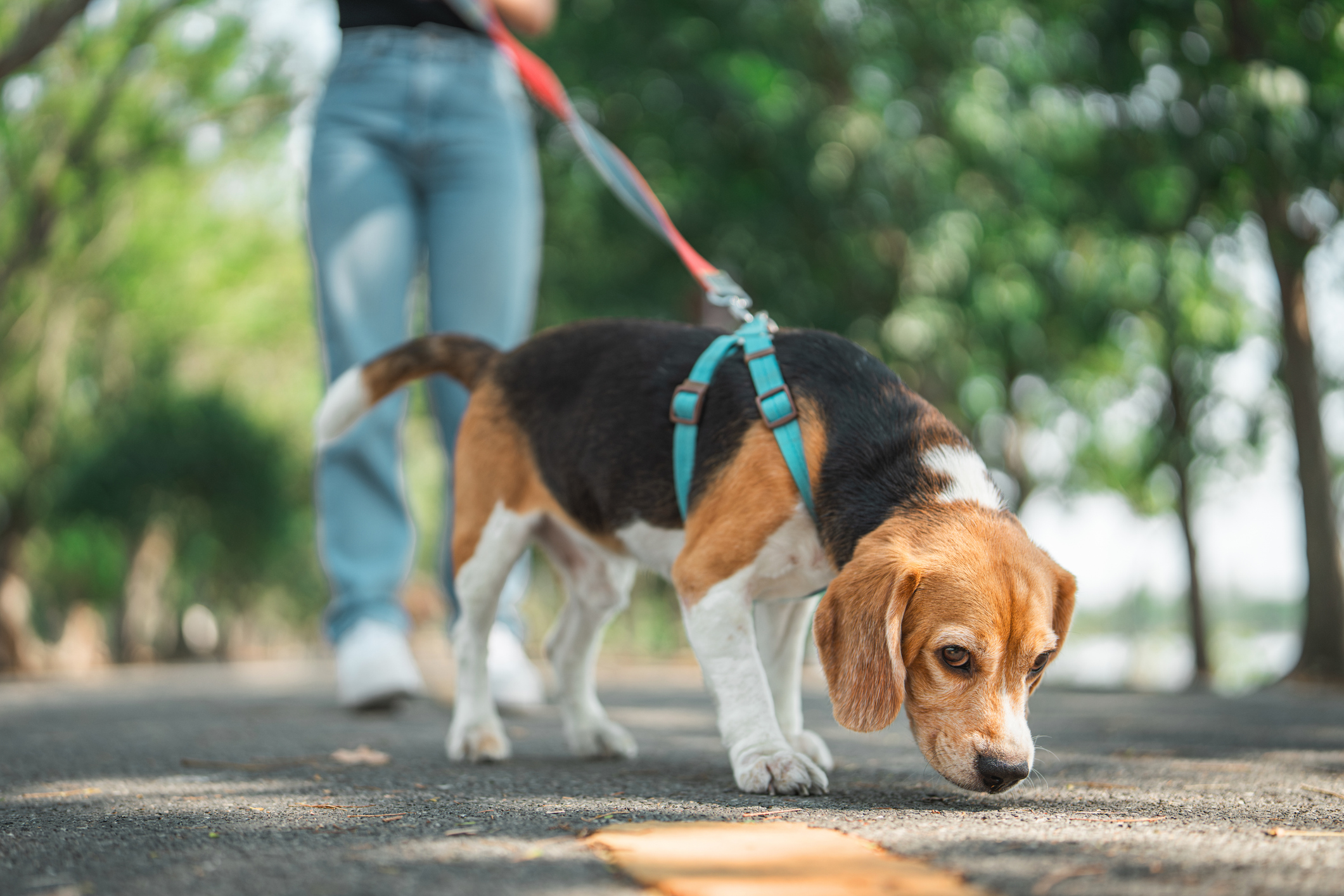
Every walk doesn’t need to be a power walk. Letting your dog take their time and follow their nose is basically giving them free space to read the neighborhood paper. It’s not just random sniffing. It’s mental stimulation, stress relief, and environmental intel all in one.
Their brains are wired for scent. For many dogs, sniffing is how they make sense of everything. Cutting them off too fast or yanking them along mid-sniff feels like hanging up on someone mid-sentence. If you let them lead for part of the walk and take their time, it tells them their curiosity matters. It’s more than freedom. It’s respect.
5. Sharing your blanket without hesitation feels like pure love.

Some dogs don’t want to be under covers. Others burrow like it’s their job. When you let them share your blanket or toss part of it over them, it signals closeness on their terms. It’s warmth, comfort, and safety all rolled into one small moment.
They’re not just seeking heat. They’re seeking you. Dogs that snuggle close are usually deeply bonded. Even if they sleep on the edge, just being allowed in that personal zone matters. It’s not about spoiling them. It’s about showing them they belong. If you’ve got a dog who tucks in next to you and sighs, congratulations. You’re officially their home.
6. Letting them follow you from room to room means more than you think.
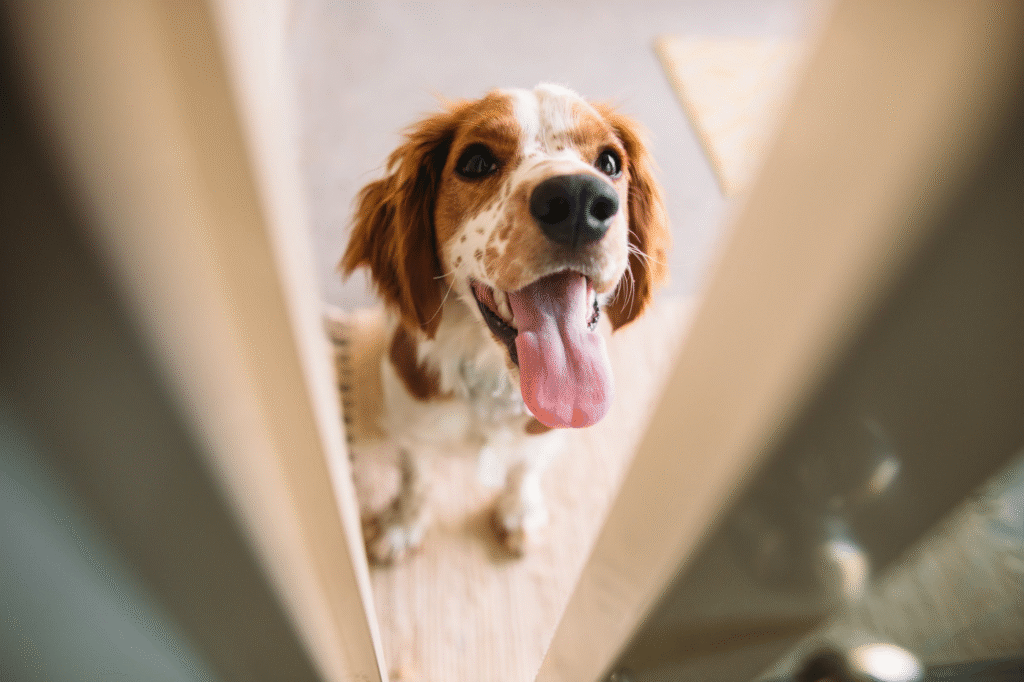
They don’t need an invite. They just want access. When you leave a door open or pause so they can catch up, that tiny gesture signals that they matter. Dogs are wired to stick with their pack, and being separated from you—even for a few minutes—can mess with their sense of security.
They’re not trying to be annoying. They’re just built to stay close. Following you around is how they stay connected, keep tabs on you, and feel useful. Even if you’re just brushing your teeth, their presence in that bathroom means something. If you block them out or treat their curiosity like a problem, they notice. It’s not clingy behavior. It’s loyalty in real time.
7. Saying goodbye before leaving helps them regulate emotions.

You may think it’s easier to sneak out quietly, but dogs actually benefit from knowing when you’re leaving. Giving them a calm, consistent signal before heading out helps lower their anxiety. A simple “I’ll be back” in a steady voice creates closure. It sounds small, but it gives them something to anchor to.
When you vanish without notice, they don’t know what happened. It leaves them waiting, pacing, or barking out of confusion. But when they hear that familiar goodbye and see you walk out with the same routine, they can brace for it. They’ll still miss you, but they won’t spiral. The predictability becomes its own kind of comfort.
8. Letting them win during play boosts their confidence.

You don’t always need to dominate the tug-of-war. Giving your dog little “wins” during play—letting them steal the toy or pin you during roughhousing—actually strengthens your bond. It’s not about spoiling them. It’s about showing them you’re a safe partner who knows how to have fun without always being in control.
Play isn’t just exercise. It’s social bonding. It’s communication. When you fake a little defeat, it builds your dog’s self-esteem and trust in you. You’re not training in that moment. You’re coexisting. Letting them feel strong and clever on occasion makes the playtime richer and the relationship deeper. You’re not just their owner. You’re their favorite teammate.
9. Talking to them throughout the day reminds them they matter.
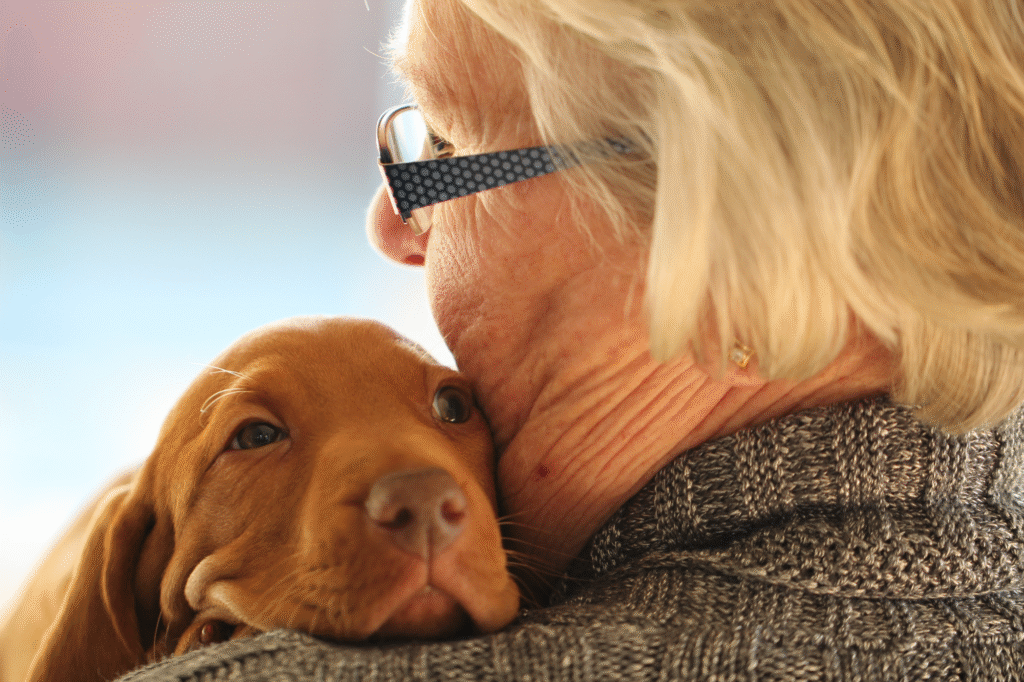
Even when they don’t understand every word, they understand tone, rhythm, and context. Narrating your life, asking them questions, or commenting on their behavior throughout the day helps them feel seen. It turns a quiet house into one filled with connection.
Dogs don’t always need structured attention. They just need to feel included. When you speak to them casually—like they’re part of the scene—they tune in. It keeps them grounded and mentally stimulated. They might tilt their head, offer a tail wag, or just watch quietly, but they’re listening. You talking to them means they’re not being ignored, even when nothing big is happening.
10. Giving them space when they’re overwhelmed teaches them trust.
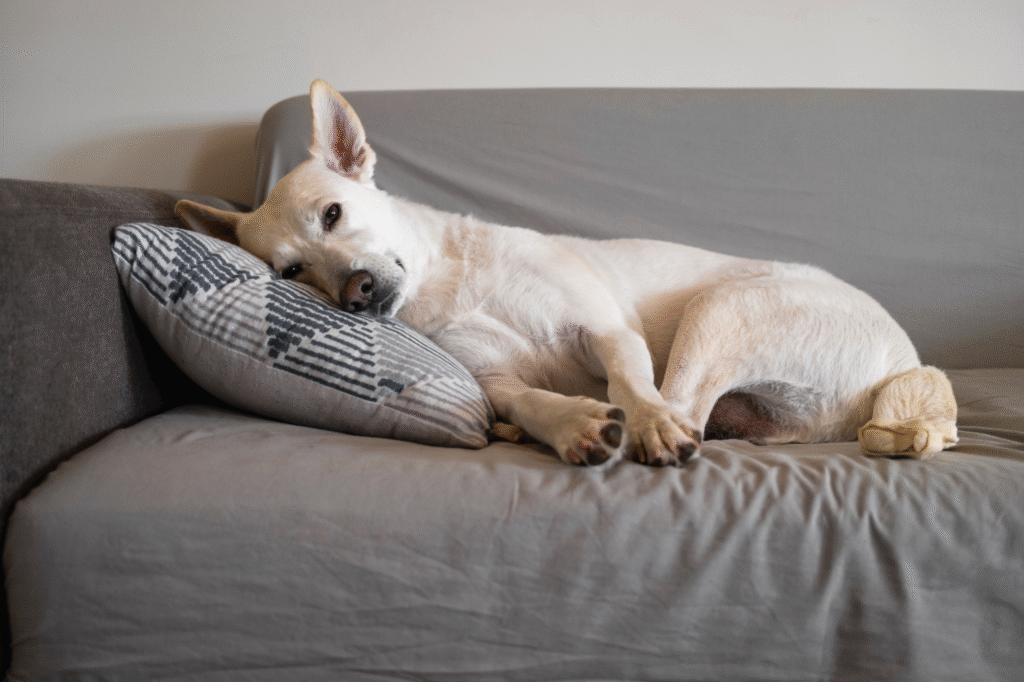
Sometimes, the kindest thing you can do for your dog is back off. When they retreat to their bed, avoid eye contact, or pace after a loud noise, respecting their need for space shows emotional intelligence on your part. It proves you’re not just there for affection. You’re also there to support them by doing nothing.
A lot of dogs don’t like being crowded when they’re stressed. Forcing comfort can backfire. But when they realize you’re willing to wait, to let them decompress on their own time, they begin to trust you more. They learn that you understand their needs even when they can’t explain them. It’s a quiet kind of love, but it sticks with them.
